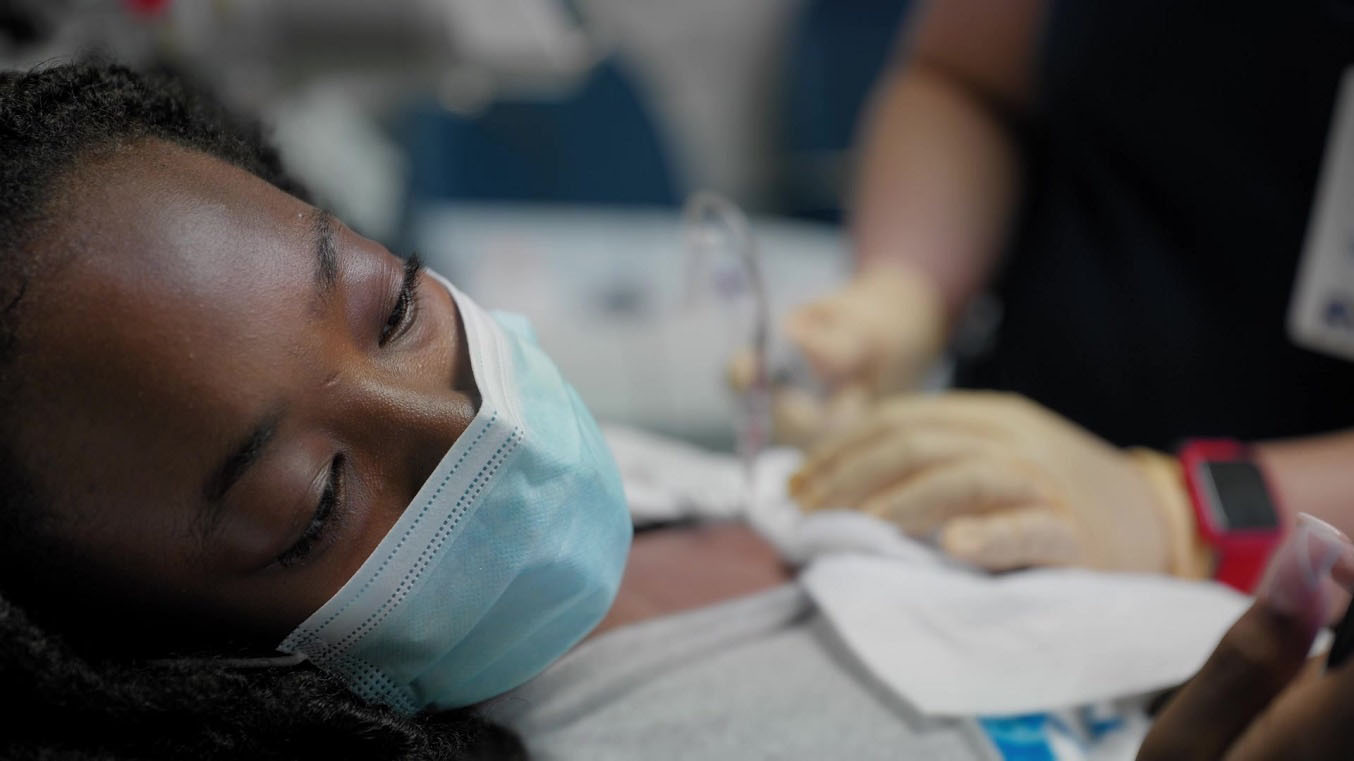New Treatment for Peripheral Artery Disease Helps Patient Get Back on Her Feet
Drug-Coated Balloon Helps Keep Arteries From Becoming Blocked Again in Common, Potentially Dangerous Leg Condition
Peripheral artery disease is a common problem, particularly in diabetics, affecting millions in the United States. Blood vessels in the legs become narrowed or blocked by fatty deposits, raising the risk of amputations, heart attacks and stroke.

Now, doctors have a new tool approved by the FDA in recent months — a balloon coated with a drug that resists the reforming of plaque on the artery walls. On Wednesday, a 91-year-old Waco woman underwent the procedure at University Hospital.
Audre Rapoport, a philanthropist who heads a Waco-based charitable foundation she founded with her late husband, Bernard Rapoport, had some blockage treated with a standard balloon catheter procedure here in September. Last month, the blockage began causing her pain again, and physicians here decided she was a candidate for the new device.
“I’m looking forward to be getting back in shoes sooner than I did last time,” said Ms. Rapoport, who returned home the following day after an overnight hospital stay. “The main thing is a lack of pain. I can get up and walk with a cane, which was all I could do before this all happened.”
“The drug is delivered to the blocked area,” said Dr. Anand Prasad, an interventional cardiologist and assistant professor of cardiology at the UT Health Science Center. “You inflate the balloon and the drug actually gets deposited on the wall of the artery. The drug is paclitaxel, a chemotherapy drug, and it prevents the body from forming scar tissue to reclose the narrowing.”
Currently two devices have been FDA approved since last summer. For Ms. Rapoport, Dr. Prasad used one made by Dublin, Ireland-based Medtronic called the IN.PACT Admiral.
“In the United States alone, there’s estimated to be up to 18 million people with PAD (peripheral artery disease), 8 million of whom are highly symptomatic,” Dr. Prasad said. “PAD in South Texas is a big issue. It’s really diabetes that’s causing a lot of this.”



